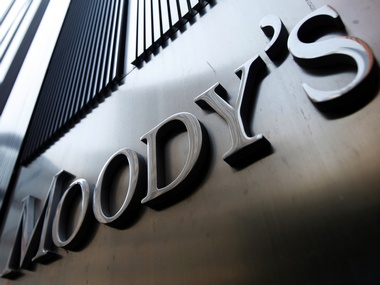The Narendra Modi government has got it all wrong in dealing with the report by economic research and analysis firm Moody’s Analytics cautioning it against the political and economic consequences of an ‘intolerant’ environment in the country. The prime minister risks losing his ‘domestic and global credibility’ unless he keeps his party members in check, the report said, referring to the inflammatory comments by the Hindu hardliners in the Bhartiya Janata Party (BJP) on various issues. The NDA government’s very ability to push critical reforms in the economy could also suffer (if) the debate turns away from economic policy in Parliament, the report said. [caption id=“attachment_2491540” align=“alignleft” width=“380”]  Reuters[/caption] The report instantly caught the attention of the local media in the context of the ongoing debate over rising intolerance, which has forced several writers, free-thinkers, scientists, filmmakers, industry leaders and even the RBI governor to speak up. Some of them were also critical of the government’s approach in dealing with the situation. Attacks on rationalist-thinkers such as Kannada author M M Kalburgi, who was shot dead for his comments on idol worship, murders of Maharashtra-based rationalists, Govind Pansare and Narendra Dabholkar and the Dadri killing, where a Muslim man was killed by a group of intruders over rumours that he consumed and stored beef at home, have figured prominently in the debates. In this backdrop, it is quite logical that the report from an international economics research agency on the same subject gets wide coverage in the local media. It has also caught the attention of finance minister Arun Jaitley and the Prime Minister’s Office, which released a statement criticising the report and denying everything it has pointed out. Not just that, the PMO went ahead and attacked the media and even the analyst, who authored the report. The PMO statement blamed the media for ‘irresponsible and distorted reporting’ ‘on what was the personal opinion of a Junior Associate Economist employed with Moody’s Analytics. “The Government notes with distress that the personal opinion of a junior analyst was passed off as a commentary on India by a Rating Agency by the media to buttress the narrative it wants to portray,” the release said. The question here is why is the government aggressively defending its position instead of responding to the issues raised by the report? Wouldn’t it have been better if the PMO had responded to the views expressed by Moody’s Analytics than attacking the analyst personally? Further embarrassment was on the way when Moody’s Analytics clarified that the views of the report are not that of an individual but the institution. In an email response made available to Firstpost, Moody’s Analytics said this: “The report was published by and is the view of Moody’s Analytics as part of its economic outlook series… The report included a section observing political developments in the context of their potential economic impact, and did not advocate any political agenda or perspective.” In effect, the PMO has scored a self-goal by attacking the media and the author of the report, instead of the issues raised. This certainly doesn’t augur well for Modi himself, who has worked hard to improve India’s image in the world through his many foreign trips. World takes note The fact is the Moody’s Analytics’ view on India has caught international attention. In an edit piece, The costs of Hindu extremism, the New York Times said: “The dismay that many ordinary Indian citizens feel about Prime Minister Narendra Modi’s willingness to tolerate, even encourage, the Hindu hard-liners in his own party has now spread to the financial community… The plain truth is that India is being driven by hatred and held hostage to the intolerant demands of some Hindu hard-liners.” Modi, who is set to begin his three-day visit to the UK next week, might face some questions on the issues raised in the Moody’s report. British Foreign Secretary Philip Hammond has confirmed that this will be one of the points of discussion between Modi and his UK counterpart, David Cameron, ‘because they are clearly relevant to Prime Minister Modi’s plans for the development of the Indian economy and the opening of India to the outside world.’ Is there intolerance? Some of the right-wing leaders and supporters have played down the current intolerance debate stating that ‘intolerance’ has always existed in this country. There may be some truth in that argument. But the fact is that a series of events, mainly the killing of free-thinkers, attacks in the name of one’s choice of food and frequent inflammatory statements by some of the BJP leaders such as this and this have clearly created tensions. There are tough questions being raised in India and abroad about an ‘intolerant’ environment’ in the country. It’s the government who should take it on the chin and respond with reason. Both were absent in the way the Moody’s episode was handled. And it is not good for the economy.
There are tough questions being raised in India and abroad about an ‘intolerant’ environment’ in the country. It’s the government who should take it on the chin and respond with reason
Advertisement
End of Article


)

)
)
)
)
)
)
)
)



